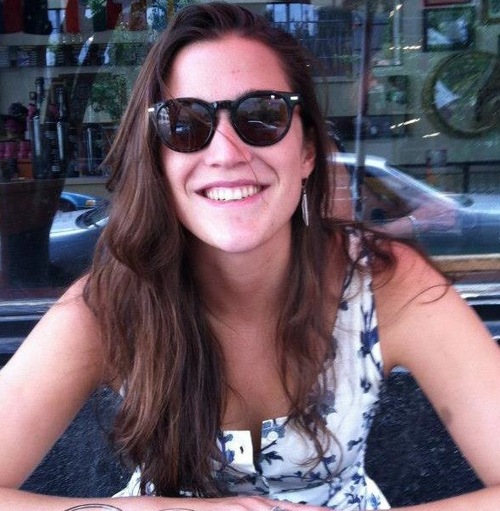
Emma Carmichael is the managing editor of Gawker. She lives in Brooklyn.
The Best Thing I Read About A Woman Who Got Blamed For Everything
The Woman Who Took the Fall for JPMorgan Chase, by Susan Dominus (New York Times Magazine)
I tend to steer clear of stories about finance because I assume they’ll either go over my head or bore me or maybe even disgust me. This one only disgusted me. I admire how patiently Susan Dominus reported and told Ina Drew’s saga. We never hear from Drew herself, and yet we’re still given as complete a portrait of her and her tenure at JP Morgan as was possible.
I’ve worked in environments with all men and found certain anecdotes that Dominus picked up to be incredibly relatable—even though the subject is one of the most powerful people in all of Wall Street. Consider:
One of the rare women to rise steadily into the management ranks on Wall Street, Drew stood out, sometimes awkwardly so, in a mostly male work environment. Havlicek recalls hearing her address a roomful of 200 male traders not long after Chemical merged with Manufacturers Hanover in 1991. “I didn’t plan any of this for my career,” she told the traders. “For God’s sake, I was captain of the twirling team in high school.” Her words were met with silence. “There were dozens of guys that were just cringing for her,” Havlicek says. “She didn’t fit their picture of what a senior trader should look like.” For Drew, there were a lot of moments like that: guys rolling their eyes, muttering under their breath about something she just said. “She never seemed to care,” Havlicek says. “She just kept doing what she was doing.”
In general I would say that my favorite unofficial genre of Longreads is the kind that when I finish I think, “that woman is a badass.”
The Best Thing I Read About Girls
The Loves of Lena Dunham, by Elaine Blair (New York Review of Books)
I read so many words about Lena Dunham’s HBO series this year that by the time I actually got to sit down and watch the series, I’d nearly lost track of how I would have watched it “on my own.” There was so much said about what Girls had gotten wrong that it became difficult, for me at least, to focus on what the show had gotten right. Then I read Elaine Blair’s breakdown of Dunham’s treatment of sex in the New York Review of Books and remembered: Oh, I can just watch Girls as a girl, and that is valuable, too. I appreciate criticism that puts you in your place.
The Best Thing I Read About Fiona Apple
I read Dan P. Lee on Fiona Apple three times before I’d even listened to Fiona Apple’s new album once. Even Fiona Apple, creative genius, can get stuck watching Mob Wives for four hours.
The Best Thing I Read About A Former Olympian
How A Career Ends: Nancy Hogshead-Makar, Olympic Swimming Gold Medalist, by Rob Trucks (Deadspin)
This was my favorite edition of Tell Me When It’s Over, a Deadspin series by Rob Trucks. It’s such a straightforward but brilliant idea: Trucks talks to former world-class athletes about “the moment they knew their playing days were over.” Nancy Hogshead-Makar, an Olympic gold medalist in swimming, talked a lot to Trucks about her career, but also about the sexual assault that defined the later half of her career, in plain language and detail that we don’t normally hear from rape victims. (Monika Korra deserves recognition for doing similarly this year.)
The Best Thing I Read About Guns And America
This is a very biased selection that I’m including anyway because I think everyone should read it. Kiese was my professor and friend at Vassar College. I’ve been reading his writing and learning from him for a while, and he is very much the reason that I pursued writing after college at all. His work gets at an honesty that I think all personal narrative should aspire to. In person and in his writing, he talks a lot about “reckoning”—facing ourselves fully and refusing to glance over our own weaknesses and fuck-ups. I admire that a lot.
I read this story on his blog, Cold Drank, and asked him if we could republish it on Gawker soon after. I think I’ve read it about once a month ever since. This piece hits you in the gut a few times and makes you want to be a better human being.





 Get the Longreads Weekly Email
Get the Longreads Weekly Email